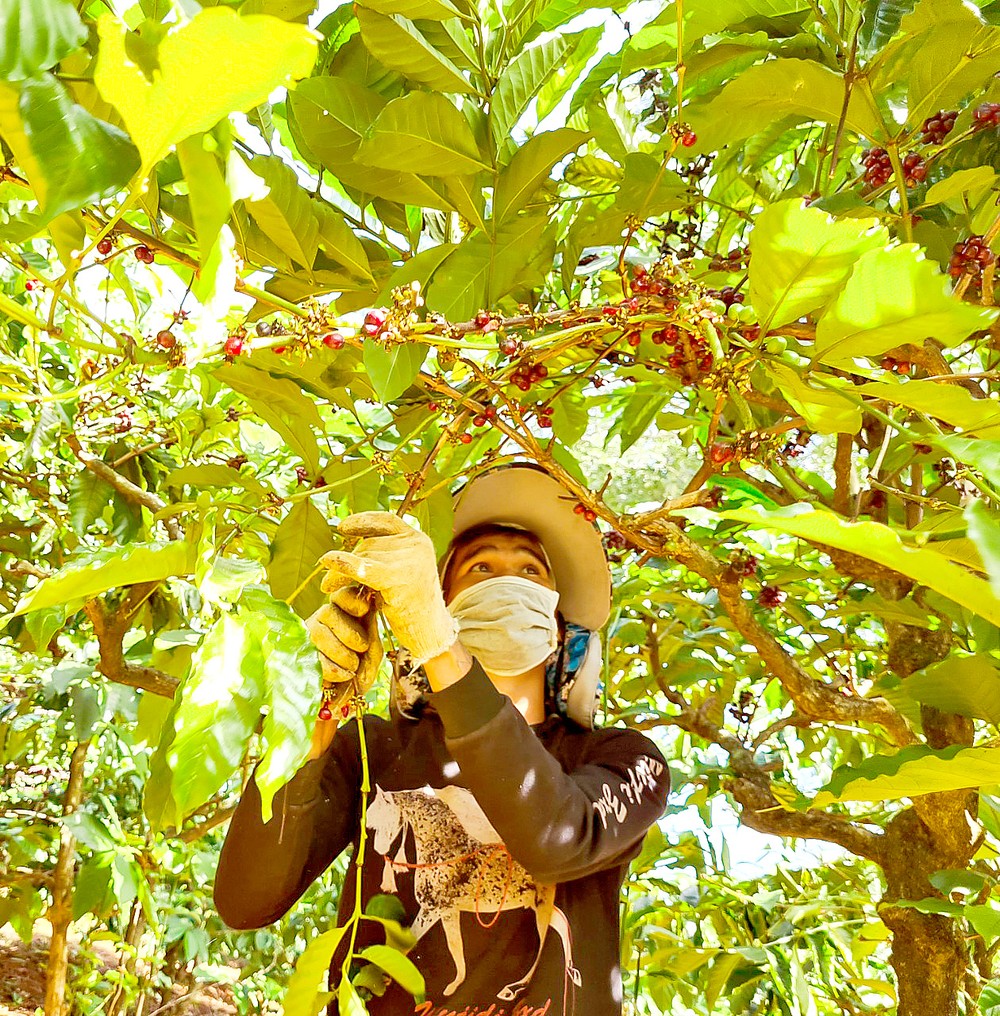
Domestic coffee prices in recent days have continued to increase. Just in six months, they have increased nearly three times, and are currently at the highest level in the past few decades.
According to the industry, farmers in the Central Highlands Province of Gia Lai have almost sold out. Most households sell fresh coffee right after harvest or sell green coffee at a price of VND80,000-VND90,000 a kg.
In mid-April, the price of green coffee in the Central Highlands reached VND110,000 a kg. In a wait-to-see mood, farmer Le Van Nghia in Nam Giang Commune of Gia Lai Province still refused to sell his cup of joe requested by prospective buyers, waiting for the price to increase to VND 120,000- VND 130,000 a kg. If he sold his coffee at VND 120,000 a kg, he would earn about VND1.8 billion and earn a profit of 70 percent of total revenue excluding labor, materials, fertilizer and irrigation costs.
The increase in coffee prices in recent days benefitted farmers in key coffee growing areas, who have only been able to sell for less than VND 50,000 a kg for a long time. However, for businesses in the Vietnamese coffee supply chain including purchasing agents to suppliers, exporters, traders, and roasters, the rapid and high price increase is causing many challenges and it revealed the unsustainability of Vietnam's coffee industry.
Many businesses have to buy at high prices to have goods and promptly deliver them to previously signed partners. Coffee expert Nguyen Quang Binh commented that many import-export traders are worried because the purchase price is too high and they don’t have enough capital to collect goods. Without coffee, their factories are at risk of temporary operation suspension. Furthermore, businesses also fretted about insufficient supply by farmers even though the contract had been signed.
A representative of Neumann Vietnam Company shared that business and trade activities in the Vietnamese coffee industry are quite stable. However, in the 2023-2024 crop year, delays in delivery based on contracts not only affected the enterprise's Vietnamese coffee export activities but also the roasters who were the enterprise's customers. Breaching contracts and signed agreements is widespread and leads to the risk of disruption of the coffee supply chain.
At current prices, farmers benefit while businesses face difficulties revealing the vulnerability of the industry’s sustainable development. Mr. Nguyen Nam Hai, Chairman of the Vietnam Coffee Cocoa Association ( Vicofa ), said that in the coffee production - trading and export chain, every step should ensure sustainability. Recently, Vicofa has issued warnings about signing contracts far from harvest season. For example, from October to December, coffee is harvested, but since August, businesses have purchased coffee, which will create very high business risks.
Vicofa believes that currently, banks necessarily support businesses. Vicofa leaders proposed that in response to the very high increase in coffee prices compared to the previous crop year, banks should consider increasing loan limits and provide preferential interest rates for coffee import and export businesses to ensure signed contracts.
According to statistics from the General Department of Customs, the country's coffee exports show a decrease in supply from March 2024 when export output is only about 185,281 tons, reaching a turnover of about US$680.86 million, down 11.9 percent in volume, despite increasing 41.1 percent in value over the same period last year thanks to increased prices. The two leading coffee exporters, Vinh Hiep Company and 2-9 Dak Lak Import-Export Company in Gia Lai Province both said that the amount of goods in stock is only enough to sell until about May and June 2024.
























